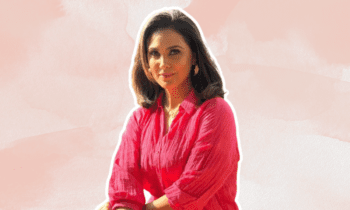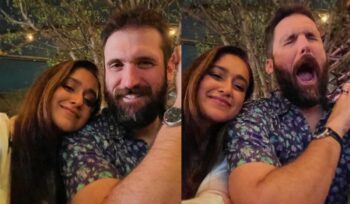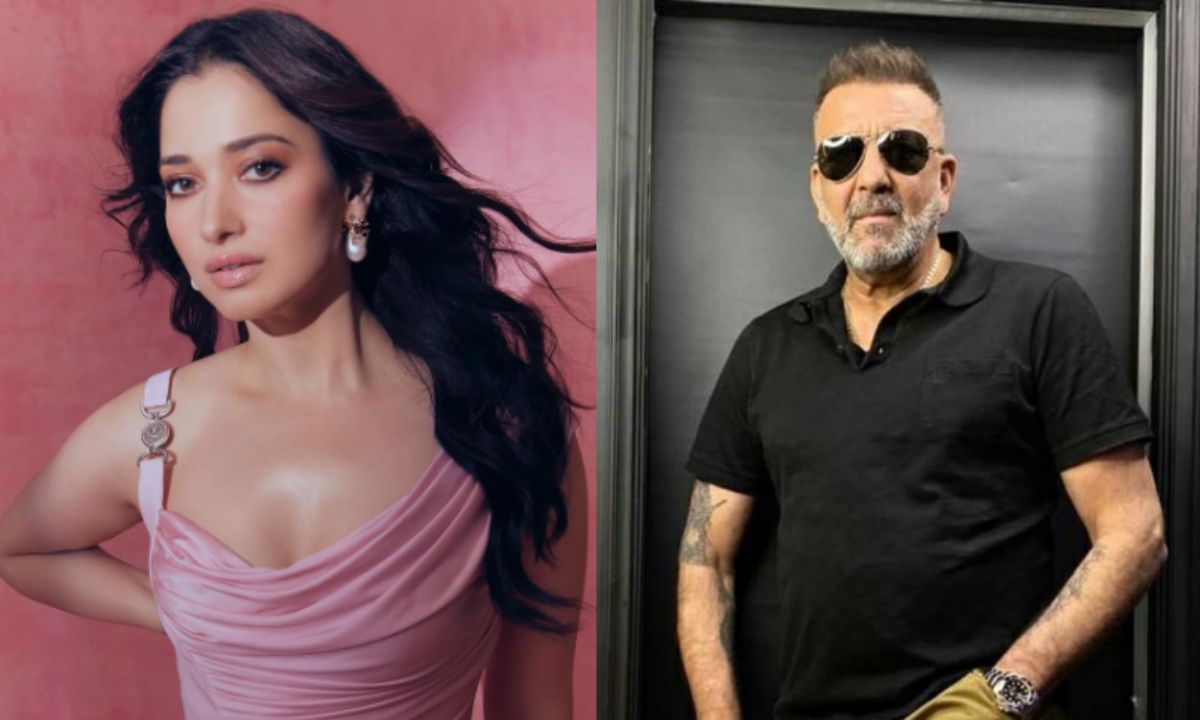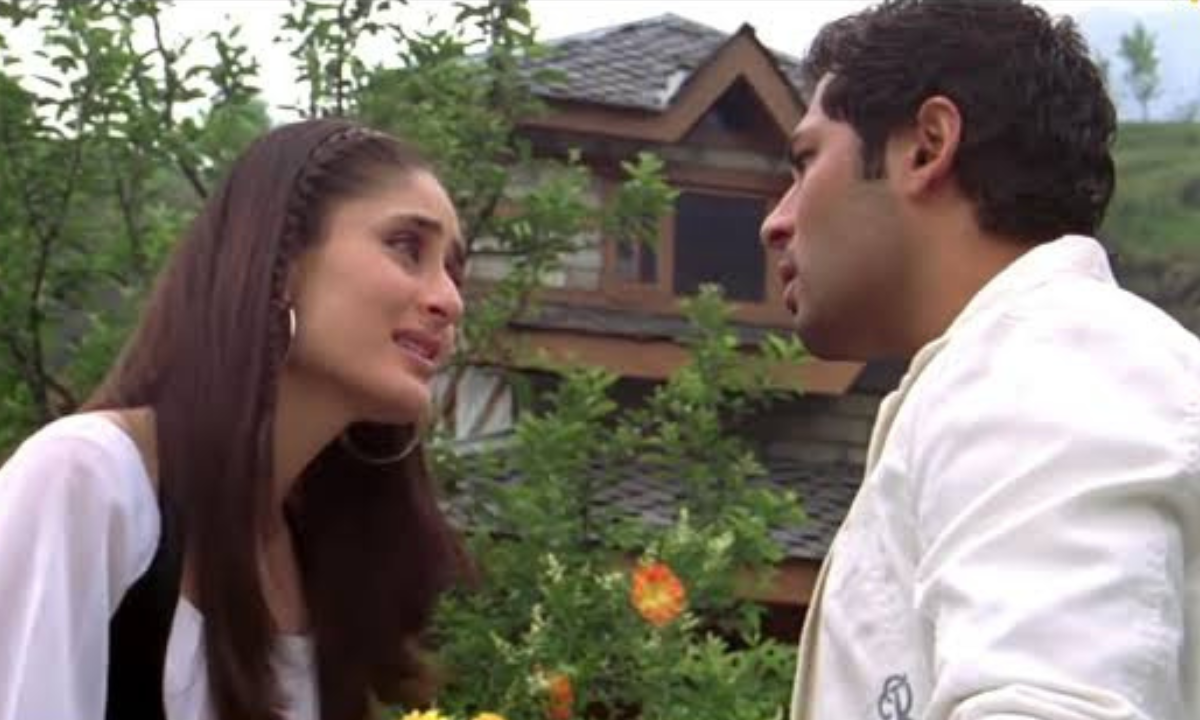NCW Chairperson Wants ‘Gunjan Saxena’ Makers To Apologise for Showing Gender-Bias In IAF. Her Reasons Show Her Own Bias
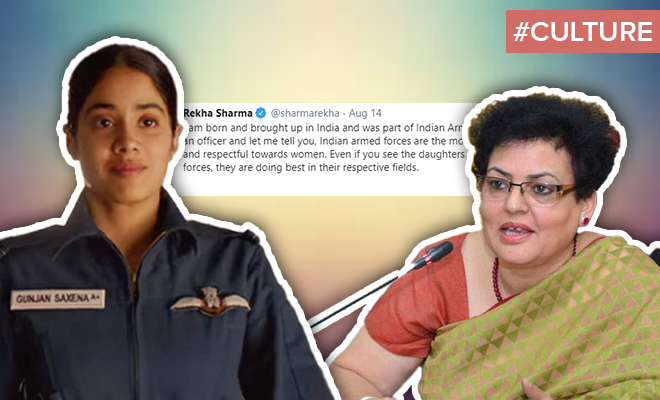
One woman’s idea of sexism can be another’s idea of normal behaviour. No, that’s not a good thing. Because it means we lack the basic criteria to clearly designate certain behaviours as gender bias. But then, there’s also the question of privilege, which suggests that two women can be a part of the same society, and while one can have a smooth-sailing life, the other must battle gender discrimination in overt or covert ways. The story of IAF pilot, Flight Lieutenant Gunjan Saxena, showcased with creative liberties (of course) on Netflix by director Sharan Sharma in Gunjan Saxena: The Kargil Girl has come under scanner for hurting sentiments. In fact, the National Commission for Women (NCW) Chairperson Rekha Sharma, and a few others from the IAF have also sought apologies from Netflix and the makers for portraying the IAF in a bad light.
Last week, there was uproar about the issue, with two of Saxena’s fellow female IAF pilots dismissing the film as peddling a bunch of lies about the Air Force. Sreevidya Rajan, a pilot who was posted alongside Saxena, spoke about how the makers of the film had “twisting the facts given by Gunjan for the sake of publicity.”
https://www.instagram.com/p/CDvQoPSFit4/?utm_source=ig_web_copy_link
Speaking about particular instances from the movie, Rajan said, “In the movie, Gunjan Saxena was shown as the only lady pilot to fly in Kargil operations. This is factually incorrect. We were posted together to Udhampur and when the Kargil conflict started, I was the first woman pilot to be sent along with the male counterparts in the first detachment of our unit which deployed at Srinagar. I flew missions in the conflict area even before Gunjan’s arrival at Srinagar. After a few days of operation, Gunjan Saxena came to Srinagar with the next set of crew. We actively participated in all operations given to us which included casualty evacuation, supply drop, communication sorties, SAR, etc. The heroic acts of the protagonist portrayed in the climax never actually happened and may have been shown as part of cinematic licence.”
However, Rajan did acknowledge that there was some difference in treatment that was meted out.
“We were under strict scrutiny and certain mistakes of ours were met with corrective actions which may have been overlooked had it been done by our male counterparts. We had to work harder than our counterparts to prove ourselves to be at par with them. Some were not happy to share the professional space with us but the majority accepted and treated us as fellow officers working towards a common goal.”
https://www.instagram.com/p/CDwRAp1FaG1/?utm_source=ig_web_copy_link
Another IAF officer, Wing Commander Namrita Chandi (retd), wrote a blog post dismissing the blatant lies that were showcased in the film and vouched for the thorough professionalism of the male officers.
“I have myself served as a helicopter pilot and I have never faced the kind of abuse and maltreatment as was portrayed in the movie. In fact, men in uniform are true gentlemen and professionals. They go out of their way to make lady officers comfortable and adjust. Yes, initially there were teething troubles like no changing rooms or exclusive ladies toilets; yet the men made space for us. Sometimes, my brother officers stood guard outside the curtain while I changed. Never in my entire career span of 15 years have I been disrespected or mistreated.”
Chandi, too, did mention in some places that there admission in the IAF was met with some natural initial resistance, but eventually merit won over gender and they were all treated equally, man or woman.
“I reiterate that none of us have anything against Gunjan. Our greatest objection is to the way the lady officers have been shown. My fellow lady officers, and I, down the years, fiercely defend our male colleagues. They have welcomed us and given us equal respect. We learned, albeit the hard way, but to co-exist with utmost harmony and respect for each other.
The seniors took us under their wings and taught us, sometimes harshly, but mostly with gentle and firm grip. In any case, we were ready to venture into a male dominated territory where the initial foray was naturally met with resistance.”
Furthermore, Chandi directly addressed Janhvi Kapoor, and discouraged her from doing any such films in the future that gave the audience a wrong impression of the nation’s armed forces.
“Poor Jahnavi Kapoor, she must have come away with a poor and pathetic impression of us women. Lady, let me advice you, please, never again do a film of this kind if you are a proud Indian woman. Stop showcasing Indian professional women and men in such poor light.”
Following these comments, the NCW Chairperson also tweeted on how there was an urgent need for clarification from the horse’s mouth itself, because according to her, army officers always give their due respect to women.
The real #GunjanSaxena must come out and clarify whether the gender discrimination shown in movie is for real? Being from Army background I can never imagine defence officers behaving like goons. Officer or not, women are always get their due respect in forces.
— Rekha Sharma (@sharmarekha) August 13, 2020
When questioned about how she was so sure of her statement, Sharma talked about how, being the wife of an army man, she had experienced first hand how respectful and disciplined armed forces are when it comes to women.
I am born and brought up in India and was part of Indian Army as a wife of an officer and let me tell you, Indian armed forces are the most disciplined and respectful towards women. Even if you see the daughters of armed forces, they are doing best in their respective fields.
— Rekha Sharma (@sharmarekha) August 14, 2020
Naturally, this made a lot of people (including yours truly) question why the chairperson of the NCW was being so naïve about something as evidently rampant as sexism in the workplace. Being the wife of an armed forces personnel, or simply ‘seeing’ the daughters of armed forces doing best in their respective fields has absolutely no connection with knowing what actually happens on the inside. Moreover, issuing blanket statements undermines the issues that may have been raised by women against armed forces personnel in the country. Twitter was quick to point out why exactly these generalisations were a major case of foot-in-mouth.
https://twitter.com/Aparna/status/1295233744098299904?s=20
https://twitter.com/PettyPraxis/status/1293945383782031362?s=20
Such a ray of hope you are for women everywhere ma'am. What pertinent issues to concern yourself with. And how astutely you are showing that if it didn't happen to YOU it couldn't have gapped to anyone. Extra points for erasing the r@pes committed by army men as well. 🙏🏿🙏🏿🙏🏿
— Edgar Allan Poeha (@vaniIlaessence) August 17, 2020
Also Read: Gunjan Saxena: The Kargil Girl Is A War Film Alright, But With A Very Different Flightpath. And It Nails The Landing.
When you see the trailer of the movie, its contents become pretty evident. I’d never heard of Gunjan Saxena before (apologies), but even I could predict roughly that the film would be tackling the issue of gender discrimination in the workplace. Why else would the first (or one of the first) woman IAF combat pilot’s story be that remarkable? She broke stereotypes and laid down the runway off which future generations of female pilots could take off the flights of their dreams. Then, would it be so unfathomable that this woman faced some sort of gender bias in the IAF? I mean, we’re in 2020 right now and people are still debating whether period leaves are a detriment to working women’s equality in the workplace pitch! By sheer virtue of knowing our human race by being a part of it, is it so hard to imagine that in 1999 a woman IAF officer faced casual sexism at her workplace?
You know, maybe it was’t on a professional level; it was more covert because these are the armed forces where disobeying a direct order would be grounds for conflict. Maybe the plot points like Gunjan’s sorties being cancelled because no male officer wanted to fly with her, or her squadron commander asking her to arm-wrestle a male officer were exaggerations. But then, could the discrimination not have been on an interpersonal level and this is just Bollywood making a hyperbolic point? If you ask me, Gunjan’s army-man father’s character, played by Pankaj Tripathi, being so darn unorthodox and supportive feels more unreal to me than Gunjan facing varying degrees of gender discrimination in a place full of alpha males. I can totally picture male officers not being too keen on flying with a female officer, but due to the strict codes and discipline of the military, not venturing their inhibitions out in the open.
Here’s what I think though, and unlike most ‘opinionated’ peeps on social media, I’m, not averse to being proven wrong. The real Gunjan Saxena might not have faced any of the situations shown in the movie. But the focus isn’t on the biases and discrimination that Gunjan faced. Every woman faces some degree of bias when she ventures into a male-dominated sphere. Maybe right now you don’t want to describe the Indian armed forces as that. But in 1999, if this was the first ever batch of female IAF officers, then damn right, it was a male-dominated sphere. Since subtlety isn’t the strong suit of Indians and Bollywood, the movie had to escalate the sexism to show just how the mindset of people in general could’ve been towards a woman who dared to rub shoulders with men. We Indians don’t recognise sexism even if it is flying a plane straight into our faces, because we’ve ingrained too much patriarchy. So probably, highlighting a few instances of misogyny were needed.
Furthermore, the makers could’ve wanted to draw our attention to how, despite it all, Gunjan Saxena managed to do what she did. And more importantly, how she proved to the men around her that her capabilities were what mattered in the end. In fact, I don’t think any of her fellow officers mistreated her. One of them even flew with her. But that’s exactly how subtle sexism can be, how latently it manifests itself, and how some men can mask it so well that it appears normal behaviour. Besides, this is the story of one woman alone. Who are we to tell her what her experience was like?
https://twitter.com/nanditas04/status/1295024039124013056?s=20
The movie’s already ruffled feathers due to Janhvi Kapoor, Bollywood star kid, being cast as a national hero while the nation mourns the death of a beloved Bollywood hero. This added layer of offense comes from the ‘creative liberties’ that the makers talked about in the disclaimer that flashed before the film. According to that slate, Gunjan Saxena, the movie, is clearly not a biopic on Gunjan Saxena, the first female combat pilot in the IAF who executed several rescue and supply missions during the Kargil War. It is an inspired story, on which the real Gunjan Saxena has been consulted. So as an audience, I’d like to give the makers the benefit of doubt for representing the story the way they did.
As for the people asking for the real Gunjan Saxena to please stand up and clear the air, well, she did. In an article she wrote for NDTV, she said,
“The moment the movie started streaming on Netflix, so many “Knights” in shining armour outraged over what they called a straight-out attack on the IAF’s reputation. Let me assure this clan, the IAF is too big and too respectable a force to even be scratched by the controversy. The IAF as an organization is not into institutional discrimination, be it on gender or anything. I can speak for myself. When I joined there was no discrimination at the organizational level. But yes, individually, no two people are the same and some individuals adapt to change better than others. Since the bias is not at an organizational level, the experiences of different woman officers would be different. To deny it completely speaks of a feudal mindset and undermines the grit of women officers.”
https://www.instagram.com/p/CDs7KMpAJFj/?utm_source=ig_web_copy_link
Addressing the arguments that the scenes about there not being proper facilities for women officers on the base, she said,
“Never in my initial years of service did I ever complain of infrastructure issues, be it the lack of a separate toilet or women’s changing rooms. In fact, when I did the survival course for almost a month, I stayed with male officers in one tent and on many occasions, freshened up early in the morning in the open jungles. I did not ask for any concessions; I wanted to do the survival course in the same way as my male colleagues. The point I want to make is that I have never highlighted these petty issues in any anti-IAF rant and I will never do so. The movie has not shown my character complaining about the non-availability of toilets. It is important, yes, but too mundane an issue to crib about.”
She finally concluded by pointing out that the film was indeed about how she achieved her hopes and dreams and her journey inspiring others to do the same. Neither she, nor the director, in any way intended to darken the pristine reputation and honour of the IAF, which in itself is too high above to get scratched by something as tiny as a Bollywood film.
To me, that seems like a good enough answer. I might be a little miffed about the dramatisation, but then again, it’s not something I am going to ask filmmakers to apologise for. The film had a purpose, which it fulfilled. A growing pet peeve of mine is when people take up arms (or tweets) to defend the honour of entities like gods, film stars and institutions that don’t need any defending in the first place. They’re above it all. But what bothered me the most in the entire debate is the views of the NCW Chairperson, which to me, felt as coming from a place of bias themselves. Can we focus on the real issues please?






